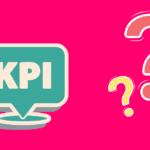No luck with social media marketing? Finding it overwhelming? Or if you just want to tread your own path and look at alternatives, well, you’re in the right place.
The top alternatives to social media marketing include search engine optimization (SEO), email marketing, content marketing, influencer partnerships, and community building. These strategies allow businesses to connect with potential customers and engage with existing ones, often at a lower cost than traditional social media marketing.
Understanding these alternatives and how they can be effectively integrated into your marketing mix is essential for staying competitive and achieving your business objectives.
In this article, we’ll explore the top alternatives to social media marketing and we’ll also discuss the benefits and drawbacks of each approach.
Let’s rock’n’roll!

What is Social Media Marketing?
Let’s just clarify things here. Although it might seem obvious, there is that meets the eye.
Social media marketing is the process of creating and sharing content on social media platforms to promote a product or service and engage with a target audience.
It involves leveraging various social media channels to connect with customers, build brand awareness, and drive website traffic.
Social media marketing is used to:
- Increase brand awareness
- Generate leads and sales
- Connect with customers and provide customer support
- Build a community around a brand
- Share valuable content and industry insights
- Gather feedback and insights
Popular social media platforms for marketing include Facebook, Instagram, Twitter, LinkedIn, Pinterest, and TikTok.
These platforms offer a wide range of tools and features, such as paid advertising, analytics, and audience targeting, to help businesses effectively reach their target audience.
You’ll find each platform will swing in and out of fashion, and also different platforms are better for specific businesses.
For example, these days if you are marketing to middle aged through to the older generations, Facebook is no brainer!
But, on the other hand, if you want to be targeting millennials, Gen Z, Gen Y and any of those Gens! TickTock should be where you get started!
Why Look for Alternatives to Social Media Marketing?
While social media marketing has proven to be an effective strategy for many businesses, there are several reasons why you might want to explore alternatives.
If you have found yourself here, one or all of the below could resonate with you.
1. Declining Organic Reach and Engagement:
As social media platforms continue to prioritize paid advertising and algorithms change, it can be challenging to achieve the same level of organic reach and engagement that was possible in the past.
This can lead to diminishing returns on investment and a need to explore other channels.
2. Dependence on Platform Changes:
Businesses that rely solely on social media marketing are at the mercy of the platform’s policies and algorithms. A single platform change can have a significant impact on their reach and engagement.
3. Ad Fatigue:
Social media users are exposed to a large volume of ads every day. This can lead to ad fatigue, where users become desensitized to traditional advertising methods.
4. Privacy Concerns:
With growing concerns over data privacy, some users are becoming more selective about the information they share on social media. This can make it harder for businesses to target and reach their desired audience.
5. The Search for Quality Leads:
While social media can be a valuable tool for lead generation, some businesses find that other marketing channels can be more effective at reaching high-quality leads.
By exploring alternative marketing strategies, businesses can diversify their marketing efforts, reach new audiences, and reduce their reliance on any single platform.
Now, let’s check out some solid alternatives out there.

5 Top Alternatives to Social Media Marketing
There are many alternative marketing strategies to social media that can help you achieve your marketing goals.
We’ll go over each of these options below.
1. Search Engine Optimization (SEO)

Search Engine Optimization (SEO) is a digital marketing strategy that focuses on improving a website’s visibility in search engine results.
By optimizing content, keywords, and technical aspects of a website, businesses can increase their organic traffic and attract potential customers.
SEO offers several advantages over social media marketing:
Long-term results: SEO efforts can continue to drive traffic and leads for an extended period, even after the initial work is done.
High intent: People using search engines are often looking for specific information or products, making them more likely to convert.
Cost-effective: While SEO requires an initial investment, it can provide a high return on investment over time.
Authority building: Ranking high in search results can help establish a business as an authority in its industry.
However, it’s essential to be aware of the potential drawbacks of SEO:
Time-consuming: Achieving high rankings can take time and ongoing effort, as search engine algorithms and competitor strategies change.
Technical knowledge required: Effective SEO often involves technical aspects of website development, which may require expertise or resources to implement.
Uncertain results: SEO results can be influenced by numerous factors, and there’s no guarantee of achieving top rankings or maintaining them.
When considering SEO as an alternative to social media marketing, it’s crucial to evaluate the specific needs and goals of your business.
Also, it is a prerequisite to be patient; it takes time to rank in the search engine. Consider SEO a long-term investment strategy for your business.
Now, one of our personal faves is email marketing.
2. Email Marketing

Email marketing is a direct communication channel between a business and its audience. It involves sending personalized and targeted emails to prospects and customers, with the goal of nurturing relationships, promoting products, and driving sales.
Some of the advantages of email marketing include:
Personalization: Email allows for highly personalized messages, which can increase engagement and conversions.
Ownership: Unlike social media, where changes to algorithms can affect reach, businesses have full control over their email lists and can communicate directly with their subscribers.
Automation: Email marketing platforms offer automation features that can save time and streamline campaigns.
However, there are also potential challenges with email marketing:
Deliverability: Ensuring that emails land in recipients’ inboxes can be a constant concern, as spam filters and email service providers’ policies evolve.
List growth: Building and maintaining an email list requires ongoing efforts to attract new subscribers and retain existing ones.
Compliance: Email marketing is subject to various regulations, such as the CAN-SPAM Act in the US and the GDPR in the EU, which businesses must comply with.
When considering email marketing, naturally, you need an email list and, ideally, an actively engaged one at that.
Don’t have one? That’s cool, our next option could be great one for your business.
Let me introduce the world of content marketing
3. Content Marketing

Content marketing is a strategic approach focused on creating and distributing valuable, relevant, and consistent content to attract and retain a clearly defined audience.
Some of the benefits of content marketing include:
Brand awareness: Content can help businesses increase their visibility and build a strong online presence.
SEO impact: Quality content can improve a website’s search engine rankings, leading to increased organic traffic.
Lead generation: Valuable content can attract potential customers and nurture them through the sales funnel.
Authority building: By sharing expertise and insights, businesses can establish themselves as industry leaders.
Cost-effectiveness: While creating high-quality content requires an initial investment, it can provide long-term benefits at a lower cost than traditional advertising.
However, there are also potential challenges with content marketing:
Time and resources: Developing and maintaining a content strategy can require significant time and resources.
Competition: With the abundance of online content, businesses must work hard to stand out and provide value to their audience.
Measurement and ROI: Determining the impact of content marketing efforts and calculating return on investment can be challenging.
Ok, so the next option flitters on the cusp of social media marketing or social ads, but, you don’t have to get your hands dirty.
It’s time to leverage off someone else’s success!
4. Influencer Partnerships

Influencer partnerships involve collaborating with individuals who have a significant following and influence in a specific niche or industry.
These influencers can help businesses reach their target audience and promote their products or services.
Some of the benefits of influencer partnerships include:
Targeted reach: Influencers have built-in audiences that align with a business’s target demographic, making it easier to reach potential customers.
Trust and credibility: Influencers often have a high level of trust and credibility with their followers, which can transfer to the products or services they promote.
Authenticity: When done well, influencer partnerships can feel more authentic and less intrusive than traditional advertising.
However, there are also potential challenges with influencer partnerships:
Cost: Working with influencers can be expensive, especially those with larger followings.
Alignment: Finding the right influencers who genuinely resonate with a business’s brand and values can be a challenge.
Measurement: Determining the exact impact and return on investment of influencer partnerships can be difficult.
Pick the right influencer who is big in your niche, and you can have some seriously incredible results.
Last, but certainly not least, leverage your community. People like Justin Welsh have nailed this.
5. Community Building

Community building involves creating a dedicated space where like-minded individuals can connect, engage, and support each other around a shared interest or goal.
Businesses can build communities online through platforms like forums, Facebook Groups, or their own branded community platforms.
Some of the benefits of community building include:
Loyalty and retention: Communities can foster strong relationships between members and the brand, leading to higher customer loyalty and retention.
Advocacy: Engaged community members are more likely to become brand advocates and spread positive word-of-mouth.
Customer insights: Communities provide a valuable source of feedback and insights that can help businesses improve their products and services.
Organic growth: A thriving community can attract new members through word-of-mouth and social sharing.
However, there are also potential challenges with community building:
Time and effort: Building and maintaining a community requires ongoing effort and resources.
Moderation: Ensuring a positive and supportive environment often involves moderation and management.
Measurement: Determining the impact and return on investment of community building can be challenging.
When evaluating community building as an alternative to social media marketing, it’s essential to consider the specific goals of your business and the current size and engagement level of the current community.
Remember, it’s a numbers game, baby!

Final Thought of The Day
As the social media landscape continues to evolve, it’s essential for businesses to explore alternative marketing strategies that can complement their existing efforts and show results.
From search engine optimization to email marketing, influencer partnerships, and community building, each alternative offers unique benefits and challenges.
By carefully evaluating these options and their potential to meet your specific business objectives, you can create a well-rounded marketing strategy that leverages the strengths of multiple channels.
Ultimately, the goal is to build a diversified marketing mix that allows you to connect with your audience across various touchpoints, reduce dependence on any single platform, and adapt to changes in the digital landscape.
If you’d like to learn more about different marketing channels, SlideBean explains things beautifully in th is video:
Frequently Asked Questions
What are the top alternatives to Facebook for marketing?
There are several alternatives to Facebook for marketing, including Instagram (which is owned by Facebook), Twitter, LinkedIn, Pinterest, and YouTube.
Each platform has its own unique features and audience demographics, so it’s essential to understand your target market and tailor your content accordingly.
What are the best social media marketing alternatives to Twitter?
Some popular social media marketing alternatives to Twitter include Facebook, LinkedIn, Instagram, Pinterest, and TikTok.
These platforms offer a range of advertising options, and each has its unique strengths and weaknesses.
Are there any good social media marketing alternatives to Instagram?
Some alternatives to Instagram for social media marketing include Facebook, Pinterest, and Twitter.
While these platforms may not have the same focus on visual content as Instagram, they can still be effective for reaching your target audience through various advertising and organic content strategies.
What are some alternatives to social media marketing for small businesses?
Small businesses can explore a range of alternatives to social media marketing, including content marketing, email marketing, search engine optimization (SEO), and influencer partnerships.
These strategies can be more cost-effective and offer better targeting and control over the content compared to traditional social media marketing.
What are the top social media marketing alternatives to LinkedIn?
Some top social media marketing alternatives to LinkedIn include Facebook, Twitter, Instagram, and Pinterest.
Each platform caters to different demographics and user behaviors, so it’s essential to research and understand your target audience to determine the most suitable platform for your marketing efforts.










